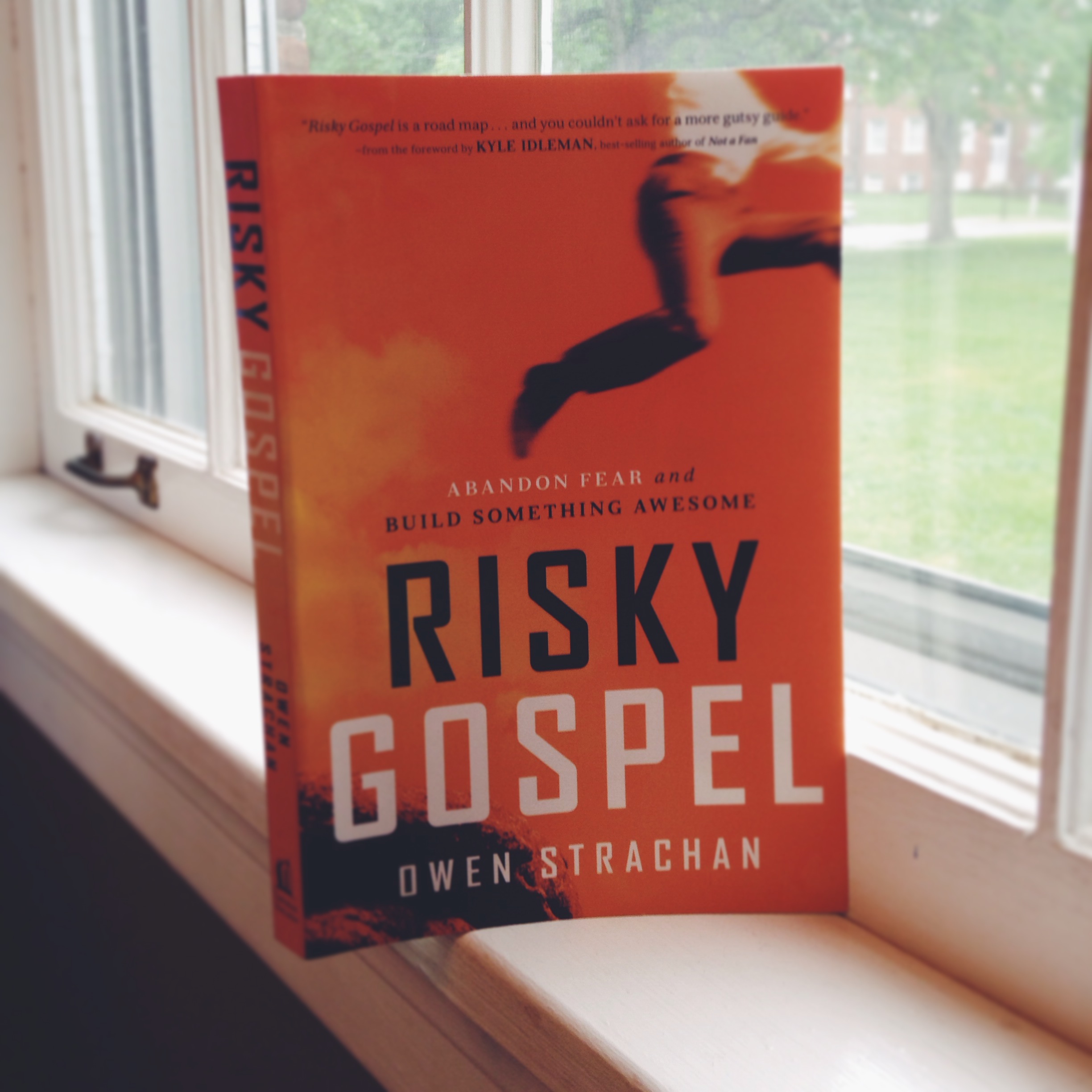Help for the Risks We're Called to Take
 by Harrison Watters
by Harrison Watters
It's easy for me to admire people like Ernest Shackleton, John F. Kennedy, and Harriet Beecher Stowe for the way they overcame the odds and survived a near-death trip to the south pole (Shackleton), swam two miles towing a wounded soldier away from a sinking ship (Kennedy), and challenged the status-quo on salvery by writing the book that President Lincoln purportedly said started the Civil War (Stowe). Even more so, as a Christian, I am inspired by men and women of Christ like Jim Elliot, Amy Carmichael, and William Booth, who by the power of the Spirit, took the gospel to Ecuador, India, and England (respectively).
What about you? Who are your heroes? I suspect we admire them in part because we would love to be like them in courage and endurance. But if we are honest with ourselves, we know that we wouldn't be able to do those things. You watch movies like, "End of the Spear," and think, "Wow! How did he do that? I'm glad I'll never be in his shoes!" In quiet, middle-class America, it's hard to think of risking all, of letting go of our lives for anything. Just keep plugging away at the job, have a nice home, wife, a couple of kids, two cars, and regular vacations and life will be great. Live the simple life.
These aren't bad things--some of us have been blessed by God with these things. We won't necessarily be called to missions, but we still need to be faithful to the work we are called to do.
As Christians, we are called to something greater than we could ever think of on our own--"something awesome." Which is exactly what Owen Strachan, professor of church history at Boyce College in Louisville, KY, shows us in his book, Risky Gospel. Strachan makes it clear that risk is precisely what we must do, but that we can't do it on our own. We need someone to help us do the works God has prepared for us. "For we are his workmanship, created in Christ Jesus for good works,which God prepared beforehand, that we should walk in them" (Ephesians 2:10).
We are called by the Master to do His work. It won't be easy or comfortable, but we must do it. Strachan says, "We will have 'tribulation,' which means pain, hardship, suffering. I don't know what you were promised when you became a believer, but this is Jesus' promise to us." But it's not without comfort. "God doesn't leave us alone. He calls to a great mission, offers us tremendous adventure, but then surprises us by telling is that he will be right beside us."
Strachan shows how believers can make a difference in the broad categories of faith, identity, spirituality, family, vocation, church life, evangelism, public witness, and finally, failure.
In the late 1800s a seemingly unknown man by the name of Henry Crowell founded the highly succesfull Quaker Oats company in Ravenna Ohio. Over the years, that company has grown to be one of the leading cereal producers in America. But unlike most wealthy entrepreneurs, Crowell wasn't intrested in creating a monopoly or racking up ten-digit numbers in his bank accounts. He was more concerned about furthering the Kingdom of Christ on earth. (That may be the reason he is so unknown by today's generation. Those who do the work of Christ are bound to be shunned by the world.) This is just one person Strachan brings to our attention in the pages of his book.
We are surrounded by heros of the faith who faithfully do the work God has given them to do, whether that be ministering in poor communities or serving in a health clinic, teaching children in a classroom or around their kitchen table, waiting tables or stocking shelves. We are called especially to be faithful to Christ in our vocations and workplaces, in our families and friendships and in our churches. To be a faithful witness to a coworker, to a brother or sister, to a fellow churchmember, is a beautiful thing in the eyes of God.
The stakes are high: risk all and gain everything, risk nothing and lose everything. Jesus said, "Whoever finds his life will lose it, and whoever loses his life for my sake will find it" (Matthew 10:39).
Read this book, then ask yourself, what are you willing to risk for the cause of Christ?
Harrison Watters is the eldest son of Steve and Candice Watters and an avid reader. This is his first contribution to the blog.